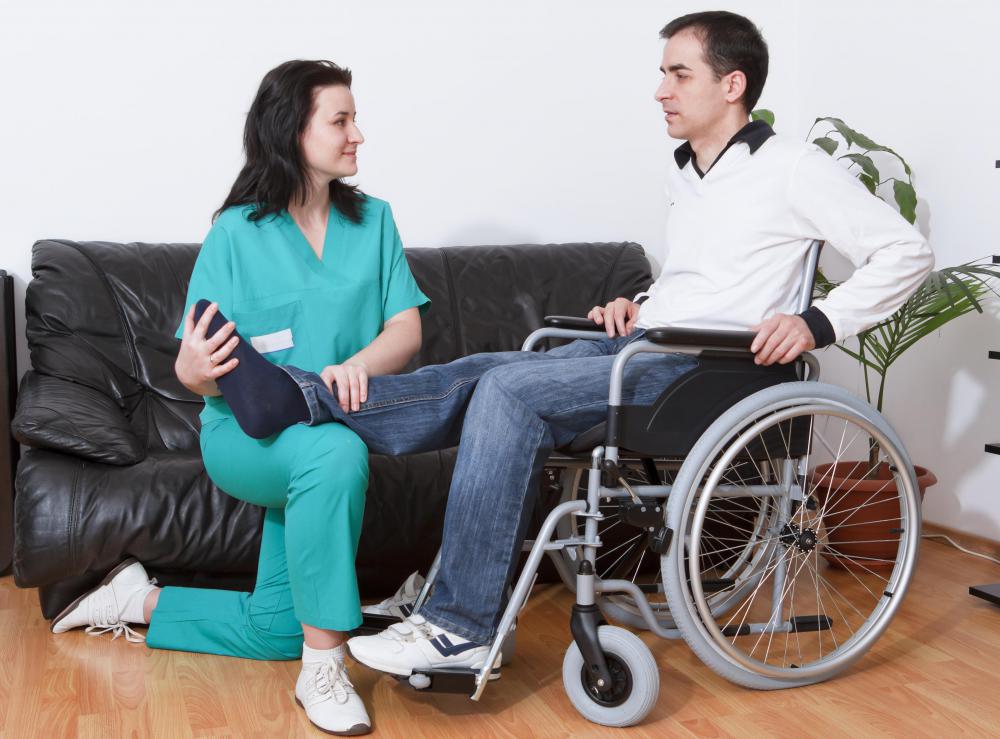At WiseGEEK, we're committed to delivering accurate, trustworthy information. Our expert-authored content is rigorously fact-checked and sourced from credible authorities. Discover how we uphold the highest standards in providing you with reliable knowledge.
What is Quadriplegia?
Quadriplegia is a type of paralysis and loss of sensation that affects a person’s upper and lower body. It usually starts at or around the shoulders and extends downward, including both arms and legs. An individual who is quadriplegic may lack sensation in the affected areas and lose the ability to control the affected body parts. For example, an affected individual is typically unable to feel and lift her arms and legs.
Brain or spinal cord injuries are generally the cause of quadriplegia. An injury to the spinal cord that results in quadriplegia is referred to as a lesion. Such injuries may occur in vehicle accidents or falls. Some people develop quadriplegia because of a sporting accident. The condition also can result from a disease, such as polio.

A person is said to have a complete spinal cord injury if he is totally paralyzed below a lesion. If he has some function or feeling below the lesion, the individual is said to have an incomplete spinal cord injury. For example, an individual may be able to feel body parts below a lesion but not move them. The condition can work in an opposite manner as well, allowing patients to have control of their body parts but no sensation.

Besides the loss of function and feeling in the arms and legs, an individual with quadriplegia may have to deal with the loss of bladder and bowel control and impaired digestion. Breathing may be affected too, particularly in patients with lesions that affect a high part of the spinal cord. Quadriplegics often struggle with pressure sores, infections, and fractures. Many battle depression as well.

Many quadriplegics have injuries that leave them without sensation and function for the duration of their lives. Some do, however, recover a small amount of function. Many patients require machines to help them breathe, while others are able to breathe on their own. Some are able to handle daily living tasks independently, while others are completely dependent on others for their care.

Interestingly, the idea that all quadriplegics are confined to a wheelchair is a misconception; some retain the ability to walk. The function and sensation a person has depends on the severity of his injury. An individual may be more severely affected on one side of the body or even in a certain area of the body. For example, an individual may lose function of his fingers but not his arms. Likewise, he may lose sensation in one leg, yet retain some sensation in the other.
AS FEATURED ON:
AS FEATURED ON:
















Discussion Comments
what can you take for sns or do for it?
Post your comments